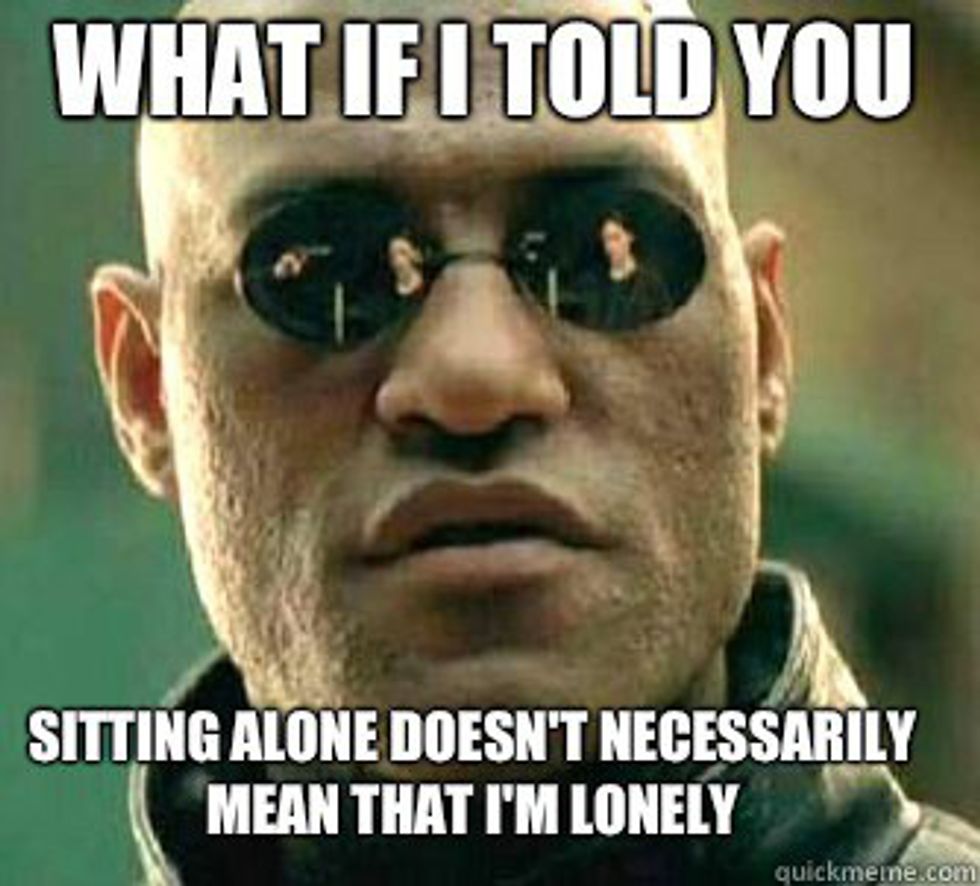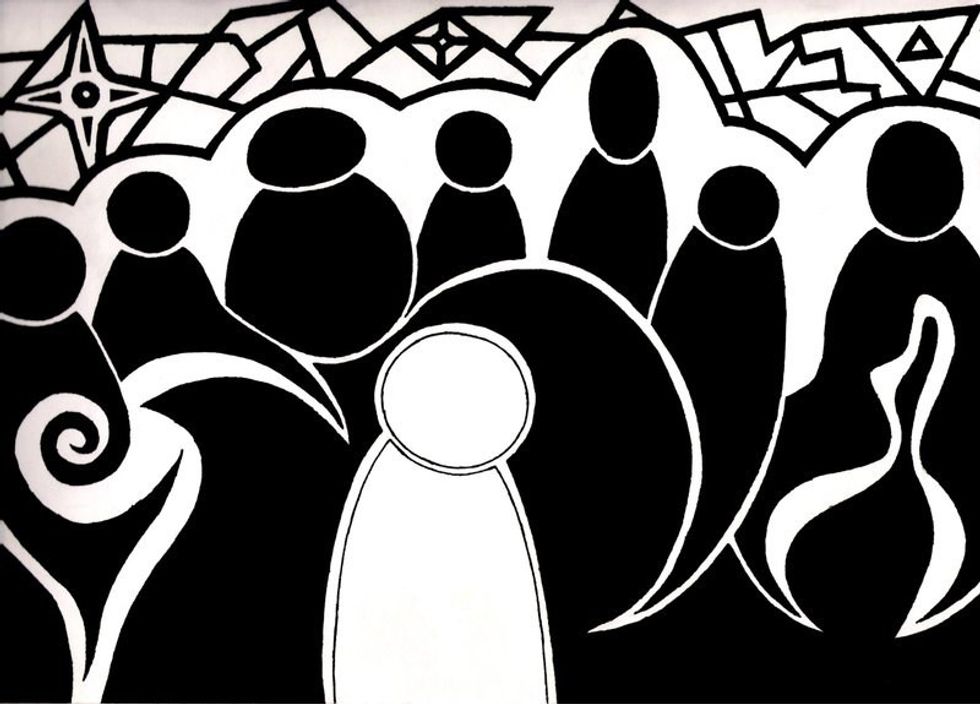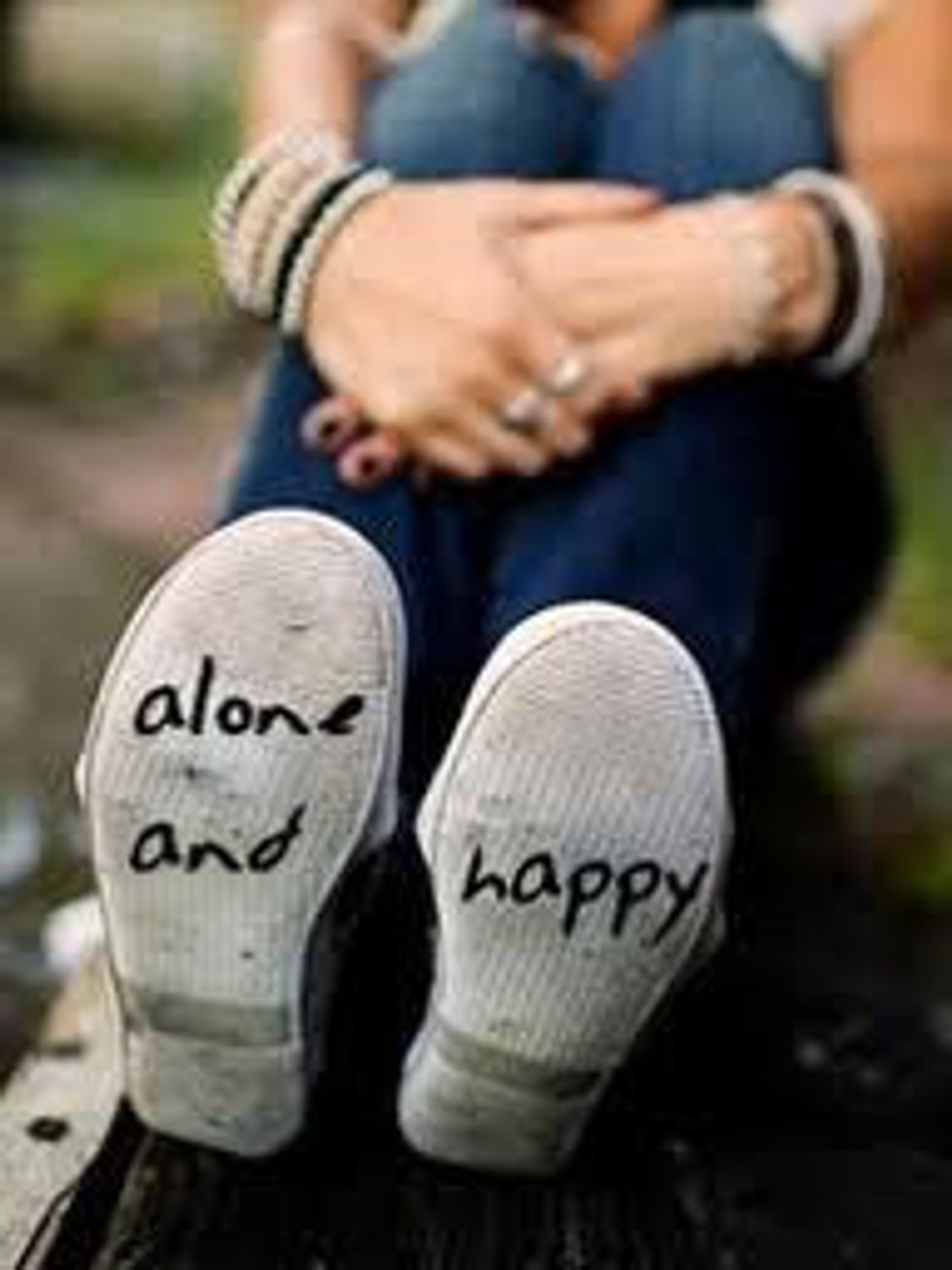There is a common misconception that being alone and being lonely are interchangeable because they are "fundamentally the same thing." People believe that those that choose a life of solitude or choose to spend more time away from large groups of people are lonely. In order for these people to see the error in their thinking, they must first understand that there is a difference between loneliness and being alone; they must understand what the difference is and learn to respect a person's decision to be alone.
The main difference that we must understand is that being alone is a state of being. Being alone is most often characterized by the number one: the only one to hold a belief, the only one in a room and the list goes on. When we're alone we are more internal and our thoughts tend to be more encompassing because we have little to distract us. It is true that being alone can sometimes overlap with being lonely, but they are not at all equivalent. Someone that learns to be alone is oftentimes happier than someone that is lonely. Being alone helps us learn who we are as individuals. This is something that is crucial to our lives and our well-being. When we learn who we are, it is much easier to learn to love ourselves. Then we can learn to truly love someone else without the fear that love for that person will consume us.
On the other hand, being lonely is a mental state that ,most times, has nothing to do with being alone. Just like how being happy is a mental state, being lonely is the result of an active or sometimes overactive mind over analyzing the simplest details. Loneliness is the feeling of being alone no matter how many people surround us and is often accompanied by other emotions like sadness, grief or even anger. Loneliness is more philosophical than being alone and is not as quantifiable; loneliness is more mysterious and usually changes from person to person: what makes one person feel lonely does not have to be the same for someone else. Loneliness must be taken seriously and at no point is it okay to criticize or ostracize someone who admits to feeling lonely. Loneliness often stems from something or somewhere: bullying, abuse (sexual, physical, emotional, verbal, etc.), personality disorders, unmet goals, and the list goes on.
This is to show that loneliness and being alone can be worlds apart and neither should be taken lightly, but we must understand that they are entirely different. Because of the common belief that if someone is alone then they must be lonely, it is said that if you're single, if you're not married, if you choose not to get married that you are doomed to a life of loneliness. As I sit here writing, I speak from a place of experience: when people hear that you are single and not doing anything about it or that you do not intend to get married they immediately scoff at the idea and say " it's because you're young, do you really want to be lonely all your life?" Hearing this would be frustrating for anyone and that's why people must be educated in the difference between the two. The best that we can do for people who choose to be alone or single or different or anything else, is to respect their choices and their belief.
Source
The best we can do for those that we love is to ensure that they are okay with being alone with themselves and their thoughts, but that they are never lonely. It is unfortunate, but we cannot control whether or not people feel lonely. What we can do is try our best so that even if the people we love feel lonely they know that they are loved.

























